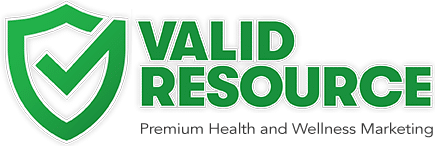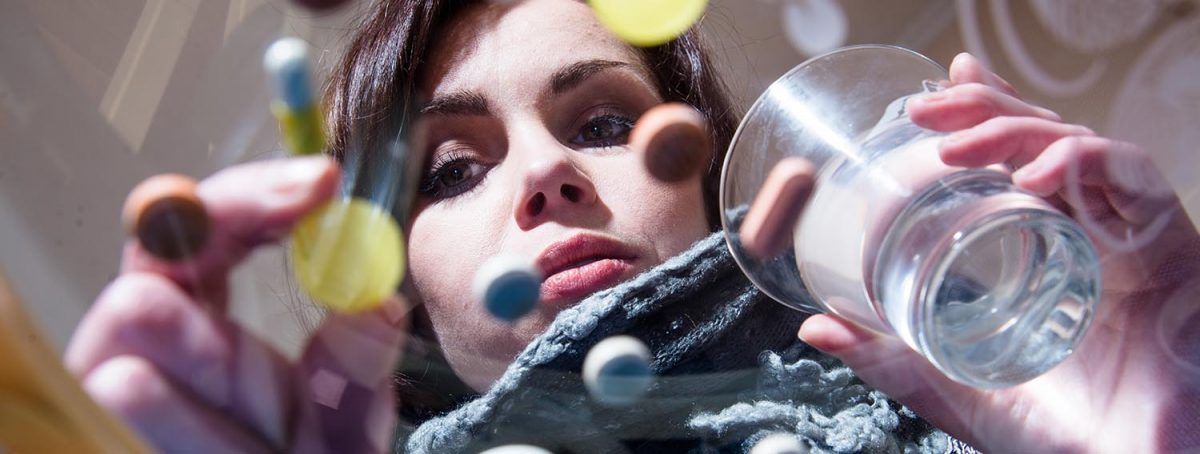In the behavioral health services industry, coming from a place of care, compassion and understanding is extremely important. Many psychologists believe the need to be understood is one of the most powerful drives we have as humans. Being understood may even be as important as being loved.
This is especially true when it comes to communication about someone’s mental health. Effective treatment messaging with an addict, is only possible when he or she feels understood by either the message or the messenger. Without some sense of being understood, words and even images, rarely have the ability to influence thoughts and behavior.
Watch the video or read the full article below.
It’s always important in your long term marketing plan to consider your target audience. So, what do addicts respond to in treatment messaging? Chances are you’re not the first person to bring up the subject. In fact, by the time you begin your interaction with an addict, chances are they’ve been hinted at, coaxed, cajoled, sweet-talked, guilted, bargained with, and shouted at about treatment. To make things even more challenging, most of the people who have already tried to get through to an addict had some sort of existing relationship. In a lot of cases, addicts have already been approached by the people they love the most – and still no luck.
Now it’s your turn at bat. Are you prepared? Before we look at some solid marketing tools you could be using, let us first consider the needs of your potential customers. Let’s take a look at some of the key factors in learning what addicts respond to in treatment messaging.
It’s always important in your long term marketing plan to consider your target audience. So, what do addicts respond to in treatment messaging? Chances are you’re not the first person to bring up the subject. In fact, by the time you begin your interaction with an addict, chances are they’ve been hinted at, coaxed, cajoled, sweet-talked, guilted, bargained with, and shouted at about treatment. To make things even more challenging, most of the people who have already tried to get through to an addict had some sort of existing relationship. In a lot of cases, addicts have already been approached by the people they love the most – and still no luck.
Now it’s your turn at bat. Are you prepared? Before we look at some solid marketing tools you could be using, let us first consider the needs of your potential customers. Let’s take a look at some of the key factors in learning what addicts respond to in treatment messaging.
6 Key Factors to Consider
1. Seek first to understand. Then to be understood.
In the behavioral health services industry, coming from a place of care, compassion and understanding is extremely important. Many psychologists believe the need to be understood is one of the most powerful drives we have as humans. Being understood may even be as important as being loved.
This is especially true when it comes to communication about someone’s mental health. Effective treatment messaging with an addict, is only possible when he or she feels understood by either the message or the messenger. Without some sense of being understood, words and even images, rarely have the ability to influence thoughts and behavior.
People who are struggling with addiction will be hyper sensitive to this. They may feel like they are surrounded by people who do not understand them, no matter how well-meaning these family members or friends may be. However, addicts are not completely unique in this. Think of how many loving parents fail to effectively communicate with their teenage sons and daughters because their children don’t feel understood by their parents.
https://www.ncbi.nlm.nih.gov/pmc/articles/PMC4249470/
https://consciousmagazine.co/consciousdaily-jun27-2016/
2. To whom exactly is your drug rehab directing its marketing strategy?
Where do they live? How old are they? What sort of education do they have? What are their likes and dislikes? Is this person male or female, what socio-economic background are they likely to have? How long is this person likely to have been an addict? What substances has this person used? For how long? Add your own questions based on what you know of your community.
The more details you can capture, the better you will understand what sort of messaging might appeal to the person you’re targeting in your overall marketing strategy. Build a comprehensive profile for each type of person you’re interested in reaching. No one likes to be thought of as part of some generic group. Every one of us wants to be treated as an individual and the more detailed your profile, the richer your messaging can be. If your messaging makes the addict feel like you know something about them, the more likely they will be to respond.
https://www.inc.com/guides/2010/06/defining-your-target-market.html
3. The huge difference between sympathy and empathy.
In daily life, many of us use these words interchangeably, and that’s okay. However, when it comes to potentially saving the life of an addict by getting them into substance abuse treatment, there’s a huge difference between sympathy and empathy. If your messaging delivers a sense of sympathy, it’s not likely to be well received. Instead, a sense of empathy in your messaging can unlock the hard shell an addict builds around them.
The dictionary definition is marginally helpful. It might be better to think of it this way: Sympathy describes when one person has pity for another person because of the situation they are in. eg. “I care about your suffering.” Empathy is more about compassion. Eg. “I feel your suffering.”
To an addict, sympathy can come across as being somewhat apart from or maybe even as being judged. Empathy demonstrates how you know what it’s like to be in it with them.
https://www.psychologytoday.com/us/blog/hide-and-seek/201505/empathy-vs-sympathy
4. What’s on their mind?
What sort of questions might an addict be thinking about? Ideally, your messaging should be able to provide answers to these questions. To help sort this out, it helps to determine what stage of the consideration process the addict might be in. Are they ready to pick out a rehabilitation facility or are they thinking “some day, I’ll get around to it”? Typically, there are 5 stages to choose from. Stage One: Initial Interest -- “Maybe I need to start thinking about rehab.” Stage Two: Active Consideration – “What can I expect from rehab?” Stage Three: Investigation: “What’s the cost of rehab and how long does it take?” Stage Four: Comparison – “What the best rehab facility for me based on my budget?” Stage Five: First Contact – “What’s my first impression of this place?” Stage Six: Roadblocks -- “I would if I could but . . . “
Each stage requires its own messaging that provides the right type of content and not so much that it overwhelms the addict. Empathy for each stage will help guide you.
https://www.business2community.com/marketing/9-key-customer-lifecycle-stats-2017-01736233
5. The message and the messenger.
What sort of credibility do you have? How well are you known in your community? What do people say about you online or through word of mouth? What social proof do you have? Does your website have valid trust signals prominently displayed? The messenger can be just as important as the message. The answer to these questions and others can speak volumes in support of your message or in conflict with your message.
In fact, your reputation and your social proof can override concerns an addict may have about price or facilities or location.
https://neilpatel.com/blog/social-proof-factors-2/
6. As an experienced rehab marketing agency, we recommend communicating your detailed messaging across every property available to your brand.
Search engine marketing is the most effective way to communicate your recovery center’s value to the audience that is actively researching this topic. Most people will “Google” something before they buy it. With the high importance of substance abuse treatment, an effective marketing campaign mixed with a detailed and targeted search engine optimization strategy is key.
Google Maps will help you target your potential audience with great precision. Having an active and updated Google My Business profile will help your target audience find your drug rehabilitation facility locally and beyond.
Social media marketing is crucial in developing a rapport with your local community and the mental health services community you are a part of. Having regular, targeted posts on a variety of topics will help build trust behind your brand. Paying attention to your social media channels will help demonstrate that you care about what you do to someone researching the most effective treatment centers in your local area.
All business and marketing services offered should be considered, as there are so many potential ways to capture the attention of someone who is finally ready and looking for help. We don’t have to tell you that the addiction treatment industry is one of the most competitive industries in the world. Before someone spends thousands of dollars on a treatment program, they will want as much information from you as possible. Leave no stone unturned, by disseminating as much information online about your business as possible.
6 Key Factors to Consider
1. Seek first to understand. Then to be understood.
In the behavioral health services industry, coming from a place of care, compassion and understanding is extremely important. Many psychologists believe the need to be understood is one of the most powerful drives we have as humans. Being understood may even be as important as being loved.
This is especially true when it comes to communication about someone’s mental health. Effective treatment messaging with an addict, is only possible when he or she feels understood by either the message or the messenger. Without some sense of being understood, words and even images, rarely have the ability to influence thoughts and behavior.
People who are struggling with addiction will be hyper sensitive to this. They may feel like they are surrounded by people who do not understand them, no matter how well-meaning these family members or friends may be. However, addicts are not completely unique in this. Think of how many loving parents fail to effectively communicate with their teenage sons and daughters because their children don’t feel understood by their parents.
https://www.ncbi.nlm.nih.gov/pmc/articles/PMC4249470/
https://consciousmagazine.co/consciousdaily-jun27-2016/
2. To whom exactly is your drug rehab directing its marketing strategy?
Where do they live? How old are they? What sort of education do they have? What are their likes and dislikes? Is this person male or female, what socio-economic background are they likely to have? How long is this person likely to have been an addict? What substances has this person used? For how long? Add your own questions based on what you know of your community.
The more details you can capture, the better you will understand what sort of messaging might appeal to the person you’re targeting in your overall marketing strategy. Build a comprehensive profile for each type of person you’re interested in reaching. No one likes to be thought of as part of some generic group. Every one of us wants to be treated as an individual and the more detailed your profile, the richer your messaging can be. If your messaging makes the addict feel like you know something about them, the more likely they will be to respond.
https://www.inc.com/guides/2010/06/defining-your-target-market.html
3. The huge difference between sympathy and empathy.
In daily life, many of us use these words interchangeably, and that’s okay. However, when it comes to potentially saving the life of an addict by getting them into substance abuse treatment, there’s a huge difference between sympathy and empathy. If your messaging delivers a sense of sympathy, it’s not likely to be well received. Instead, a sense of empathy in your messaging can unlock the hard shell an addict builds around them.
The dictionary definition is marginally helpful. It might be better to think of it this way: Sympathy describes when one person has pity for another person because of the situation they are in. eg. “I care about your suffering.” Empathy is more about compassion. Eg. “I feel your suffering.”
To an addict, sympathy can come across as being somewhat apart from or maybe even as being judged. Empathy demonstrates how you know what it’s like to be in it with them.
https://www.psychologytoday.com/us/blog/hide-and-seek/201505/empathy-vs-sympathy
4. What’s on their mind?
What sort of questions might an addict be thinking about? Ideally, your messaging should be able to provide answers to these questions. To help sort this out, it helps to determine what stage of the consideration process the addict might be in. Are they ready to pick out a rehabilitation facility or are they thinking “some day, I’ll get around to it”? Typically, there are 5 stages to choose from. Stage One: Initial Interest -- “Maybe I need to start thinking about rehab.” Stage Two: Active Consideration – “What can I expect from rehab?” Stage Three: Investigation: “What’s the cost of rehab and how long does it take?” Stage Four: Comparison – “What the best rehab facility for me based on my budget?” Stage Five: First Contact – “What’s my first impression of this place?” Stage Six: Roadblocks -- “I would if I could but . . . “
Each stage requires its own messaging that provides the right type of content and not so much that it overwhelms the addict. Empathy for each stage will help guide you.
https://www.business2community.com/marketing/9-key-customer-lifecycle-stats-2017-01736233
5. The message and the messenger
What sort of credibility do you have? How well are you known in your community? What do people say about you online or through word of mouth? What social proof do you have? Does your website have valid trust signals prominently displayed? The messenger can be just as important as the message. The answer to these questions and others can speak volumes in support of your message or in conflict with your message.
In fact, your reputation and your social proof can override concerns an addict may have about price or facilities or location.
https://neilpatel.com/blog/social-proof-factors-2/
6. As an experienced rehab marketing agency, we recommend communicating your detailed messaging across every property available to your brand.
Search engine marketing is the most effective way to communicate your recovery center’s value to the audience that is actively researching this topic. Most people will “Google” something before they buy it. With the high importance of substance abuse treatment, an effective marketing campaign mixed with a detailed and targeted search engine optimization strategy is key.
Google Maps will help you target your potential audience with great precision. Having an active and updated Google My Business profile will help your target audience find your drug rehabilitation facility locally and beyond.
Social media marketing is crucial in developing a rapport with your local community and the mental health services community you are a part of. Having regular, targeted posts on a variety of topics will help build trust behind your brand. Paying attention to your social media channels will help demonstrate that you care about what you do to someone researching the most effective treatment centers in your local area.
All business and marketing services offered should be considered, as there are so many potential ways to capture the attention of someone who is finally ready and looking for help. We don’t have to tell you that the addiction treatment industry is one of the most competitive industries in the world. Before someone spends thousands of dollars on a treatment program, they will want as much information from you as possible. Leave no stone unturned, by disseminating as much information online about your business as possible.
Ultimately, what do addicts respond to in treatment messaging is a combination of art and science. Here’s where the homework really pays off. A small to medium sized facility that pays extra attention to the six factors we’ve outlined here can compete with much larger competitors with bigger budgets and more locations. The more you can understand about your marketplace, your community and the needs of the addicts in your area, the more successful you are likely to be. Deciding whether or not to commit to a specific drug and alcohol treatment program is a very personal choice. Know the person - first.
Ultimately, what do addicts respond to in treatment messaging is a combination of art and science. Here’s where the homework really pays off. A small to medium sized facility that pays extra attention to the six factors we’ve outlined here can compete with much larger competitors with bigger budgets and more locations. The more you can understand about your marketplace, your community and the needs of the addicts in your area, the more successful you are likely to be. Deciding whether or not to commit to a specific drug and alcohol treatment program is a very personal choice. Know the person - first.
PJ is the author of The Softwire Series and was nominated for an Emmy for his commercial work with drug and alcohol addiction treatment centers. Trained in digital marketing analytics at MIT, PJ helps ethical health and wellness centers find clients. www.redbear.tv

Premium Marketing Expertise Exclusively for the Health and Wellness Industry.
Call now to see how we can help you. 1-323-524-0528

Marketing Expertise Exclusively for the Health and Wellness Industry.
Call now to see how we can help you.
1-323-524-0528




